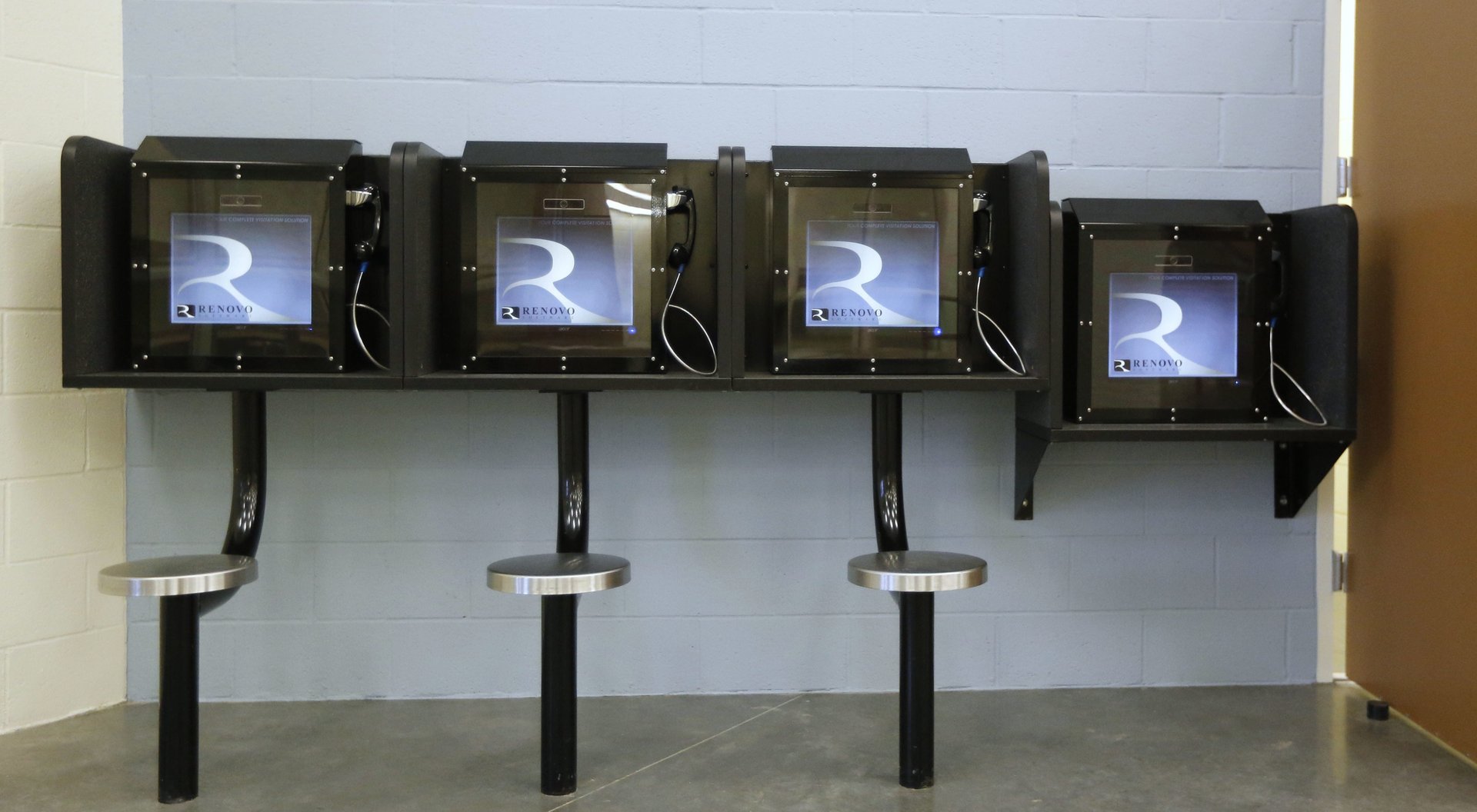Another US state has started replacing in-person jail visits with video calls
A jail in Massachusetts is banning in-person visits to replace them with video calls, making the state the latest in which local authorities have decided to implement a policy that is widely decried as cruel and counterproductive.


A jail in Massachusetts is banning in-person visits to replace them with video calls, making the state the latest in which local authorities have decided to implement a policy that is widely decried as cruel and counterproductive.
Video visitation was once touted as a technological innovation that would help inmates remain in touch with the outside world, but in many places has turned into a money-making scheme that puts a toll on those who are incarcerated and their families.
Authorities at the Bristol County House of Corrections in North Dartmouth, Massachusetts, cite security concerns and cost-savings as a reason for the switch, a common refrain among jail and prison administrators across the US that have made similar moves. Jonathan Darling, a spokesman for the local sheriff’s department, told Quartz that it was also about “convenience” for the families, who now won’t have to go through security to visit their loved ones. He said the visitors weren’t losing any contact with the inmates, because up until now visitors and inmates were separated by plexiglass.
In a 2015 report, the nonprofit Prison Policy Initiative found that the majority of facilities that introduce video visits end up banning face-to-face contact, creating situations in which an inmate’s family might fly hundreds of miles only to see the inmate on screen. If “visitors” chose to dial-in from a remote location, the fees can be exorbitant, sometimes as high as $1.50 a minute. In many cases, the facility gets a kickback from the company supplying the video-calling infrastructure (nonetheless, reports suggest revenue for jails is falling short of expectations.) Darling said Bristol County was not making money off the visitation system, but that the option might be explored in the future.
In some cases, prison telecommunications companies require in their contracts that the facility stop allowing in-person visits. Securus Technologies, which will be implementing the Bristol County system, stopped the practice after a public uproar.
Support from family is proven to help inmates re-integrate back to society. And for the millions of US children that grow up with a parent behind bars, the ability to see an incarcerated parent—and, ideally, touch them—is crucial to their well-being. Watching loved ones on TV in a glitchy connection, which is how families frequently describe the experience of video visits, simply won’t cut it.
Some jails experimenting with video calls have gone back to in-person visits. In California, the issue made its way all the way up to governor Jerry Brown, who eventually vetoed a bill that would have forced prisons to keep in-person visits. However, the California board of corrections voted in February that all future jails must have space for face-to-face visits. In Massachusetts, state senator Mark Montigny filed in January a bill in the legislature that would prevent Bristol County for implementing their new policy. It was referred to the state’s public safety committee.